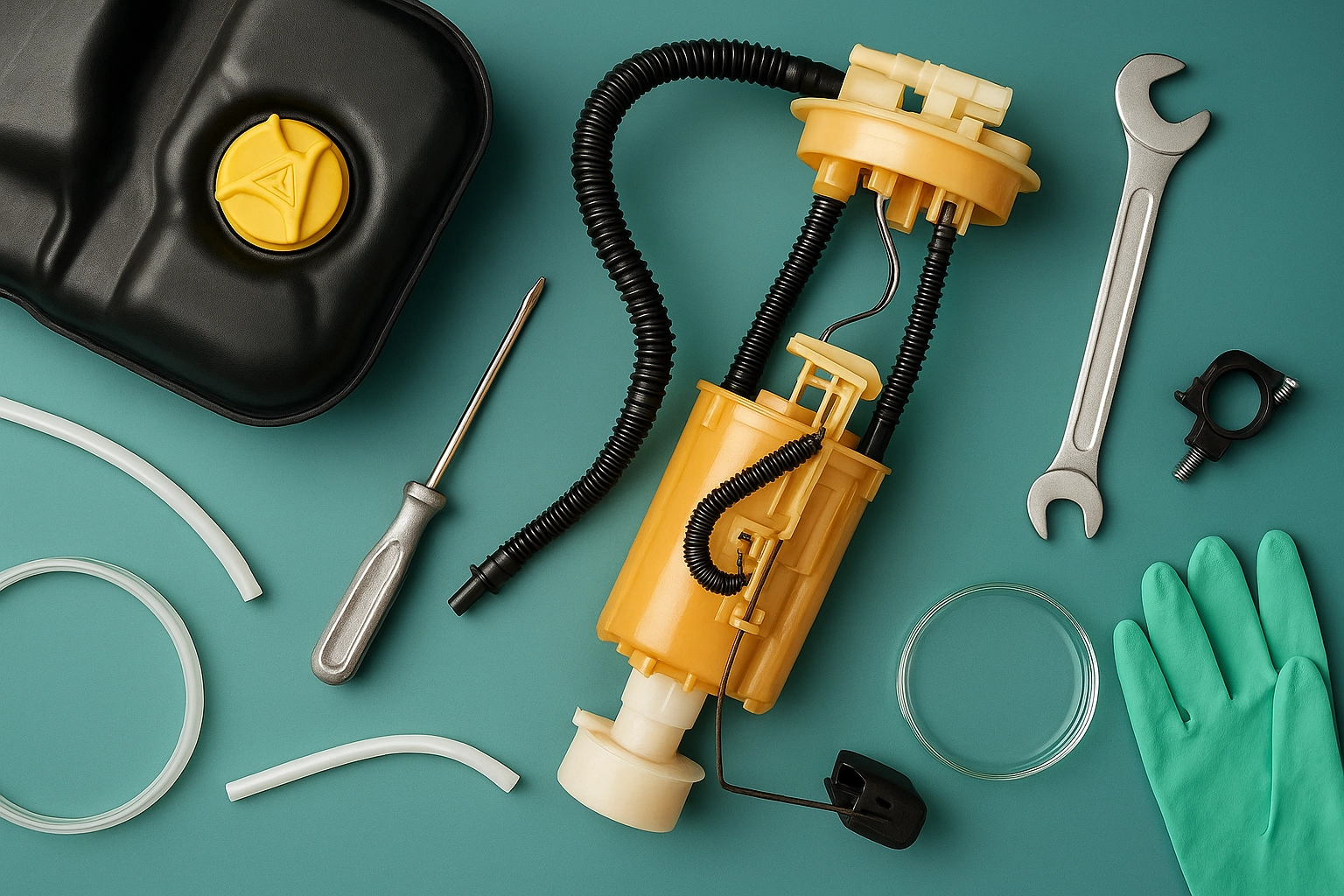SAE J2260 Nonmetallic Fuel System Tubing Permeation Test
The SAE J2260 nonmetallic fuel system tubing permeation test is a critical procedure designed to evaluate the integrity and reliability of fuel system components within the automotive industry. This test ensures that the materials used in fuel systems do not permit the migration or diffusion of harmful substances into the fuel, thereby safeguarding both performance and safety.
The SAE J2260 standard is one of several guidelines developed by the Society of Automotive Engineers (SAE) to regulate the testing methods for nonmetallic fuel system components. It focuses on permeation testing which is essential in ensuring that materials used are not only resistant to fuel but also withstand environmental conditions such as temperature fluctuations, humidity, and mechanical stress.
The test involves exposing a sample of nonmetallic tubing to a specified fuel under controlled conditions for an extended period. The permeability rate, or the amount of fuel that passes through the tube over time, is measured and compared against accepted limits. This measurement helps determine if the material is suitable for use in automotive fuel systems.
The methodology outlined in SAE J2260 is particularly important for ensuring compliance with environmental regulations and safety standards. By conducting this test, manufacturers can verify that their components will not contribute to issues such as fuel contamination or vapor leaks, which could lead to performance degradation or even accidents on the road.
The testing process typically involves several key steps. First, the tubing sample is prepared according to specific dimensions and orientations defined in SAE J2260. Then, it is exposed to a specified type of fuel under controlled temperature and humidity conditions for an extended period. Afterward, any changes in volume or composition are measured using precise analytical techniques.
The results of this test provide valuable insights into the durability and reliability of nonmetallic tubing used in automotive fuel systems. Compliance with SAE J2260 ensures that manufacturers meet not only internal quality control standards but also external regulatory requirements. This is particularly important given the stringent environmental regulations and consumer safety expectations.
Understanding the permeation behavior of materials under various conditions allows engineers to make informed decisions about material selection, design optimization, and process improvements. By adhering to SAE J2260, manufacturers can ensure that their products are safe, reliable, and environmentally friendly.
Benefits
- Ensures compliance with international automotive standards such as SAE J2260.
- Reduces the risk of fuel contamination and vapor leaks in fuel systems.
- Promotes the use of reliable, high-quality materials for automotive applications.
- Aids in meeting stringent environmental regulations and safety standards.
- Enhances product durability and performance through thorough testing protocols.
Industry Applications
The SAE J2260 nonmetallic fuel system tubing permeation test is widely used in the automotive industry to ensure the integrity of fuel system components. This test is crucial for manufacturers who produce parts such as fuel lines, fuel hoses, and other nonmetallic components that come into direct contact with fuel.
By conducting this test, companies can guarantee that their products meet the stringent requirements set by regulatory bodies like the Environmental Protection Agency (EPA) in the United States. This ensures not only compliance but also a safer driving environment for consumers worldwide.
The test is particularly valuable for R&D engineers who are developing new materials or modifying existing designs to improve performance and reliability. It allows them to identify potential weaknesses early in the development process, thereby saving time and resources.
For quality managers and compliance officers, this test provides a reliable method to verify that suppliers meet specified standards. This ensures consistency across supply chains and helps maintain high-quality products throughout the manufacturing process.
Why Choose This Test
The SAE J2260 nonmetallic fuel system tubing permeation test is a vital tool for ensuring the quality and safety of automotive fuel systems. By choosing this test, manufacturers can demonstrate their commitment to excellence in product development and production.
Firstly, it provides a standardized method for evaluating materials used in fuel system components. This standardization ensures that all tests are conducted under consistent conditions, leading to more accurate and reliable results. Secondly, the test helps identify potential issues early on, allowing manufacturers to address them before they become significant problems.
Compliance with SAE J2260 is not just about meeting regulatory requirements but also about building trust with customers. Consumers increasingly expect automotive products to be safe and reliable, and choosing this test can help companies meet these expectations. Additionally, it provides a competitive edge by allowing manufacturers to differentiate their offerings based on superior quality.
The test also supports continuous improvement in the design and manufacturing processes of fuel system components. By regularly conducting SAE J2260 tests, companies can identify trends and patterns that could indicate areas for improvement. This proactive approach helps maintain a high level of product quality and reliability.





